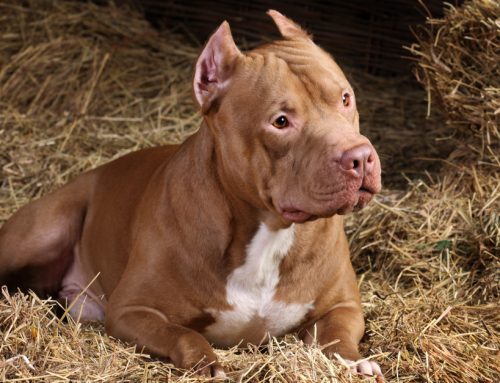By Megan Dudley
–
Christmas – it’s the hallmark of the year coming to a close. As November quickly comes to an end, employers around Australia will begin to hold their work Christmas party celebrations. Employers and employees alike will reflect on their achievements, let their hair down and enjoy some social time with colleagues.
As Australians, we tend to overindulge. Mostly on an extra slice of pavlova, but in some cases a few too many “cold ones”. Regardless of how you celebrate Christmas and the end of another year, it is critical for every employer to implement steps to minimise and manage risk at staff functions. We have answered some commonly asked questions which will help you and your company manage risk this social season.
What is my duty of care to my employee at the work Christmas party?
Your duty as an employer to an employee at the work Christmas function is no different to any other day at work. It should be treated as an extension of the work environment.
As an employer, your duty is non-delegable. This means you cannot rely on providers, venues or similar to provide a safe environment for your employees. The employer holds the duty of care to take reasonable steps to ensure the safety of its employees whilst at external premises.
Everyone is having a good time. What is the worst that could happen?
Christmas functions are largely synonymous with drinking, dancing, games and similar activities. At any function where there is a bar tab, open bar, or access to alcohol, the risk of incidents occurring is significantly increased. It is common knowledge that consumption of alcohol can affect an individual’s judgment, understanding and motor skills.
Poor management or misbehaviour at a Christmas party could potentially lead to:
- Physical injuries;
- Psychological injuries;
- Discrimination claims;
- Sexual harassment claims.
We have listed the following cases which highlight what could go wrong.
Anti-Discrimination Claim – Bell v State of Queensland & Anor (No 1) [2014] QCAT 297
A café manager was awarded $9,000 in compensation after it was found she was sexually harassed at two work social functions in December 2011. Ms Bell says her direct manager commented on her physique and asked her to engage in a sexual act with her and another work colleague.
Ms Bell successfully claimed for a psychological injury arising out of the harassment.
Unfair Dismissal – Damien McDaid v Future Engineering and Communication Pty Ltd [2016] FWC 343
In this case, the Fair Work Commission (FWC) held the employer’s dismissal of an employee was valid where the employee engaged in misconduct at the company Christmas party. Future Engineering and Communication Pty Ltd (FEC) organised a day of go-carting, followed by a Christmas party at the office (where there was an unlimited amount of alcohol). The FEC premises had a pool. After some time, Mr McDaid became inebriated and became aggressive to a colleague. He pushed the colleagues several times in the chest, and eventually into the swimming pool. Mr McDaid was asked to leave by Craig Davies, the General Manager. Mr McDaid refused, which resulted in a physical altercation between Mr McDaid and Mr Davies (who both sustained injuries).
The Commission accepted that there was a valid reason for Mr McDaid’s dismissal which was proportionate to the events which had occurred.
Unfair Dismissal – Drake & Bird v BHP Coal Pty Ltd [2019] FWC 7444
In the recent decision of the FWC, two mine workers were terminated for punching a supervisor, Mr Maunder, at a work-related Christmas party. Both Mr Drake and Mr Bird asserted that the function was a regular social event arranged by a group of employees working a particular shift roster. The social event was colloquially known as “Pyjama Night” or “PJ Night”. Both Mr Drake and Mr Bird thought the reason for higher attendance was because it coincided with the last PJ Night of the year. They asserted that they did not know it was a company-sponsored event.
At around 11.00pm that night, Mr Drake and Mr Bird approached Mr Maunder and argued. Mr Maunder then pushed Mr Drake and Mr Bird, before attempting to grab Mr Bird. Mr Bird punched Mr Maunder in the face at least once. Mr Drake then jumped over the top of Mr Bird and punched Mr Maunder at least once. As a result, Mr Maunder suffered injuries to his forehead and nose.
The FWC considered the termination of both Mr Drake and Mr Bird. The FWC held that Mr Drake’s dismissal was valid, noting there were no extenuating circumstances which mitigated his conduct. Deputy President Asbury was satisfied the event was sufficiently connected to Mr Drake’s employment. However, the FWC held a different view for the other co-worker involved, Mr Bird, finding that his dismissal was unjust given there were inferences drawn about the misconduct.
Psychological Injury – Youngblutt v Workers Compensation Regulator [2019] QIRC 100
In this case, a policewoman sustained a psychological injury following lewd comments made by a colleague at their work Christmas function in 2015. Ms Youngblutt was also subjected to inappropriate touching, advances and gestures. The colleague admitted to his behaviour in an internal inquiry, but says he had no recollection of the events because he was drunk.
The Queensland Industrial Relations Commission (“QIRC”) found that the event was part of her employment as the employer gave officers the day off and encouraged attendance.
Fatal Incidents – Campbell v Australian Leisure and Hospitality Group Pty Ltd [2015] ICQ 016
In some circumstances, activities undertaken at the Christmas party could result in catastrophic incidents causing death. The QIRC heard an appeal against a decision of the Workers Compensation Regulator bought by Mr Campbell, the husband of the deceased. The QIRC considered whether Mrs Campbell’s conduct at the work Christmas function was private conduct or if it was “in the course of employment”.
In that case, Mrs Campbell died as a result of head and neck injuries sustained from diving into the Noosa River. The function was a small barbeque, self-organised and funded by a group of employees. It had previously been advertised on the staff notice board. There was evidence suggesting other staff members and their children had gone swimming in the Noosa River earlier.
The QIRC judgment notes that death from an injury arising out of, or in the course of, employment is not compensable unless the employment is a significant contributing factor to causing the injury. Martin J upheld that Mrs Campbell was “on a frolic of her own”, and did not consider the employer to have induced or encouraged that activity. It was therefore not in the course of employment and Mrs Campbell’s husband could not seek compensation under the workers’ compensation legislation. In such circumstances, liability may not extend to the employer.
What else should I be concerned about?
Christmas functions do not carry the same risk as they did 20 years ago. With the advancement of technology, the use of social media and online content has dramatically increased. There is no doubt most employees have access to some form of social media. To prevent any unwanted material being posted online from your Christmas party, it is important to have a strong social media policy enforced.
Another consideration is how your employees will get home after the function. We recommend identifying what public transport is available, where the nearest cab rank is or even providing employees with cab charges or business uber accounts.
What can I do to manage risk at a work Christmas party?
It is very important for every employer to have a plan in place prior to holding their Christmas function.
We recommend the following:
- A review of the relevant company policies (i.e code of conduct, bullying and harassment policy, drug and alcohol policy and social media policy) to ensure they are adequate, appropriate and up-to-date;
- Re-circulate the relevant policies and hold a short meeting with employees to remind them of their obligations under each policy;
- Ensure that all employees are made aware that the function is work-related and therefore all usual work policies apply;
- Remind staff that any misconduct or misbehaviour may result in disciplinary action up to and including termination of employment;
- Ensure that any chosen function venue has a system for responsible service of alcohol and a demonstrated plan for removing inebriated patrons;
- Ensure there is sufficient food available at the function;
- Nominate one or more responsible person(s) to ensure the supervision and safety of staff while at the function;
- Have a plan in place for what to do when an employee is inebriated and is asked to leave the venue. Similarly, have a plan in place for what to do when an employee refuses to leave;
- Ensure that staff have safe transportation options to get home from the function;
- Set a clear and defined “end time” for the event and make it known to employees that any continuation of the function is not work-related.
If you would like advice about your obligations to your employees at your work Christmas party, seek legal advice from our insurance and workplace law experts at BTLawyers by emailing manager@btlawyers.com.au or calling (07) 3211 2233.






